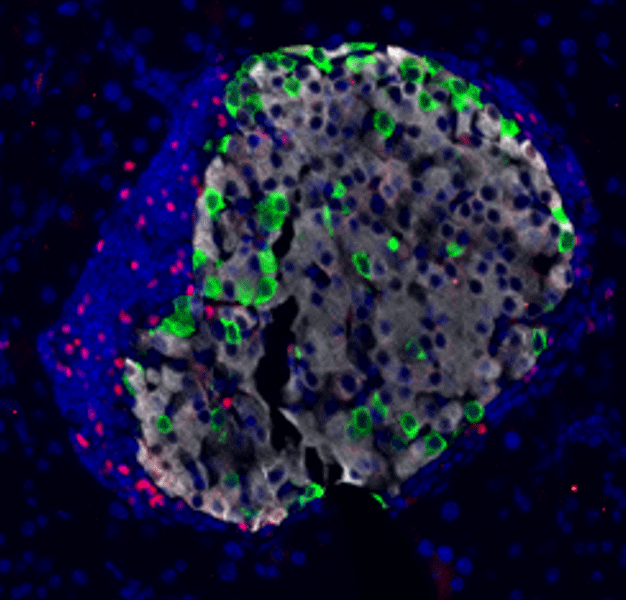Immune System Therapy Developed by Miller School Researcher Advancing Toward Clinical Trials
A leading-edge therapy for autoimmune and inflammatory diseases developed by a researcher at the University of Miami Miller School of Medicine is moving into early clinical testing in a partnership with Bristol Myers Squibb (BMS).
After licensing this proprietary “fusion protein” therapy from UM in December 2016, BMS has continued to partner with its inventor – Thomas Malek, Ph.D., professor and chair of the Department of Microbiology and Immunology – to advance this biologic therapy that can potentially help patients with autoimmune and inflammatory diseases such as rheumatoid arthritis, inflammatory bowel disease, and Type 1 diabetes.

“Current therapies target the symptoms of autoimmune disease, such as inflammation,” said Dr. Malek. “This new approach targets and enhances the regulatory process that is defective in these diseases.”
Since the 1980s, Dr. Malek has been studying the mechanisms by which the signaling protein interleukin-2 (IL-2) regulates the action of specialized white blood T-cells. IL-2 enhances some T-cells that are critical to destroy germs, including viruses and other microbes. However, IL-2 also supports other T-cells, called regulatory T-cells, that are essential to ensure the immune system does not attack the body’s own tissues. The immune system can become overactive if the regulatory T-cell process breaks down, resulting in acute inflammatory conditions or chronic disorders which are associated with autoimmune diseases.
IL-2 was first used at very high amounts in immunotherapy for cancer patients, increasing the ability of T-cells to attack cancer cells. However, more recently, low doses of IL-2 are being used to boost regulatory T-cells in the context of autoimmunity.
Dr. Malek added that “the attractiveness of low-dose IL-2 therapy for autoimmunity is that it selectively increases the number and enhances the function of those cells that normally keep your immune system from attacking your own tissues.”
A problem with recombinant human IL-2 is that it breaks down quickly in the body and needs to be infused continuously or injected frequently to maintain its effect, which can lead to undesired activation of inflammatory cells. Six years ago, Dr. Malek and his group developed a new treatment strategy, joining IL-2 with another molecule to create a fusion protein with a much longer half-life and greater selectivity for regulatory T cells. “Our research indicates that low-dose therapy with this fusion protein is much more active than native IL-2 and can be delivered safely and effectively in the laboratory,” he said.
Along with the BMS partnership, Dr. Malek is also collaborating with Alberto Pugliese, M.D, professor of medicine, microbiology and immunology at the Diabetes Research Institute at the Miller School of Medicine, to study the impact of low-dose IL-2 therapy on Type 1 diabetes.
Funding from the National Institutes of Health supported development of Dr. Malek’s cutting-edge research. The U Innovation team, including the UM Office of Technology Transfer (OTT) and the Miller School’s Wallace H. Coulter Center for Translational Research (WHCC), identified the work as having significant commercial potential. Disclosure to and patenting of the innovation by the UM OTT, as well as funding and business development support by the WHCC, ultimately led to OTT licensing the technology to BMS.
“Dr. Malek’s research stood out as having real potential to benefit public health and wellness; commercialization is often the path to ensuring that groundbreaking research makes it to the patient,” said Norma Sue Kenyon, Ph.D., chief innovation officer of the Miller School and UM vice provost for innovation.
“There are a number of potential applications for this new strategy,” said Dr. Malek. “Our hope is that this research will lead to treatments that can help millions of patients with autoimmune and inflammatory diseases enjoy a higher quality of life.”
Tags: autoimmune disease, Bristol Myers Squibb, Dr. Thomas Malek, inflammatory diseases, type 1 diabetes, U Innovation


